
Logan County is a county in the southwest Pennyroyal Plateau area of the U.S. Commonwealth of Kentucky. As of the 2020 census, the population was 27,432. Its county seat is Russellville.
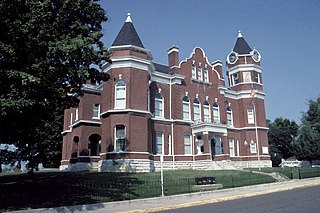
Fulton County is the westernmost county in the U.S. state of Kentucky, with the Mississippi River forming its western boundary. As of the 2020 census, the population was 6,515. Its county seat is Hickman. The county was formed in 1845 from Hickman County, Kentucky and named for Robert Fulton, the inventor of the steamboat.

Posey County is the southernmost, southwesternmost, and westernmost county in the U.S. state of Indiana. Its southern border is formed by the Ohio River, and its western border by the Wabash River, a tributary to the Ohio. As of 2010, the population was 25,910. The county seat is Mount Vernon.

Benham is a home rule-class city in Harlan County, Kentucky, in the United States. The city was formally incorporated by the General Assembly in 1961. The population was 500 at the 2010 census and estimated in 2018 to be 434.

Lynch is a home rule-class city in Harlan County, Kentucky, United States. In the 2010 census, the city population was 747, down from 900 in 2000.

Livermore is a home rule-class city located at the confluence of the Green and Rough rivers in McLean County in the U.S. state of Kentucky. The population was 1,365 at the 2010 census. It is included in the Owensboro metropolitan area.
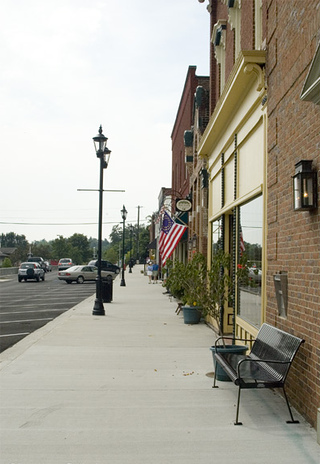
Midway is a home rule-class city in Woodford County, Kentucky, in the United States. Its population was 1,641 at the time of the year 2010 U.S. census. It is part of the Lexington-Fayette Metropolitan Statistical Area.

Pound is a town in Wise County, Virginia, United States. The population was recorded as 1,037 in the 2010 United States Census.

Black Mountain is the highest mountain peak in the Commonwealth of Kentucky, United States, with a summit elevation of 4,145 feet (1,263 m) above mean sea level and a top-to-bottom height of over 2,500 feet (760 m). The summit is located at approximately 36°54′51″N82°53′38″W in Harlan County, Kentucky near the Virginia border, just above the towns of Lynch, Kentucky and Appalachia, Virginia. It is alternatively known as Katahrin's Mountain, and is about 500 feet (150 m) taller than any other mountain in Kentucky.
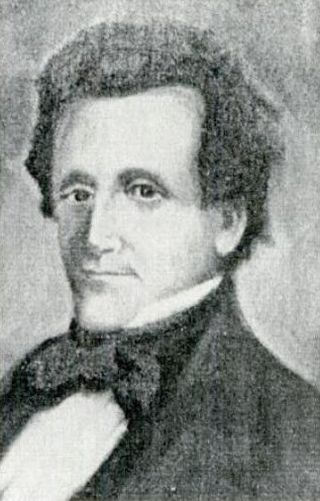
Charles Lynch was a Democratic and Whig politician who served as Governor of Mississippi and was a former slave owner.

Edwin Porch Morrow was an American politician, who served as the 40th Governor of Kentucky from 1919 to 1923. He was the only Republican elected to this office between 1907 and 1927. He championed the typical Republican causes of his day, namely equal rights for African-Americans and the use of force to quell violence. Morrow had been schooled in his party's principles by his father, Thomas Z. Morrow, who was its candidate for governor in 1883, and his uncle, William O. Bradley, who was elected governor in 1895. Both men were founding members of the Republican Party in Kentucky.
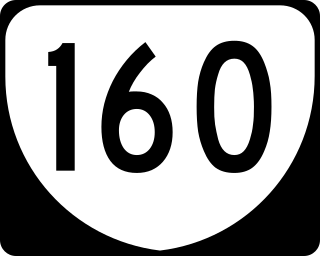
State Route 160 is a primary state highway in the U.S. state of Virginia. Known as the Trail of the Lonesome Pine, the state highway runs 8.02 miles (12.91 km) from the Kentucky state line on top of Black Mountain, where the highway continues north as Kentucky Route 160, east to SR 68 in Appalachia. Due to the mountainous terrain and numerous tight bends, Virginia State Route 160 and its Kentucky State Route 160 counterpart are signposted closed to tractor-trailers between Lynch, KY and Appalachia, VA.

The Kentucky Coal Museum is heritage center located in Benham, Kentucky. Its focus is the history of the coal industry in Eastern Kentucky, featuring specific exhibits on the company towns of Benham and neighboring Lynch. It is housed in a former company store that was built by International Harvester in 1923. In June 1990, the Tri-City Chamber of Commerce purchased the building for the future site of the museum. After receiving additional grants from the state of Kentucky, the museum opened in May 1994.
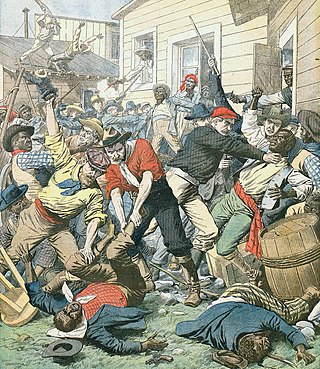
The lynching of the Walker family took place near Hickman, Fulton County, Kentucky, on October 3, 1908, at the hands of about fifty masked Night Riders. David Walker was a landowner, with a 21.5-acre (8.7 ha) farm. The entire family of seven African Americans, parents, infant in arms, and four children, was reported killed, with the event carried by national newspapers. Governor Augustus E. Willson of Kentucky strongly condemned the murders and promised a reward for information leading to prosecution. No one was ever prosecuted.
The 1866 Gallatin County Race Riot took place from August 3 past August 13 a year after the close of the American Civil War in Gallatin County, Kentucky. It was part of waves of violence by whites against blacks in the state, and even in northern Kentucky, where the black population was relatively small. According to historians Lowell H. Harrison and James C. Klotter, "A band of five hundred whites in Gallatin County... forced hundreds of blacks to flee across the Ohio River."
The lynching of the Frenches of Warsaw took place in Warsaw, Gallatin County, Kentucky on May 3, 1876, between 1 am and 2 am on a Wednesday morning. Benjamin and Mollie French, African Americans, were lynched by a white mob for the murder of another African American, which was unusual for this period. Lake Jones was an elderly black man who had faithfully served a white family named Howard, both before and after his emancipation from slavery. The Frenches were accused of poisoning Lake Jones with arsenic and intending to steal his money.
Belmont is an extinct town in Mississippi County, on the eastern border of the U.S. state of Missouri at the Mississippi River. The GNIS classifies it as a populated place under the name "Belmont Landing".
Leonard Woods was an African-American man who was lynched by a mob in Pound Gap, on the border between Kentucky and Virginia, after they broke him out of jail in Whitesburg, Kentucky, on November 30, 1927. Woods was alleged to have killed the foreman of a mine, Herschel Deaton. A mob of people from Kentucky and Virginia took him from the jail and away from town and hanged him, and riddled his body with shots. The killing, which became widely publicized, was the last in a long line of extrajudicial murders in the area, and, prompted by the activism of Louis Isaac Jaffe and others, resulted in the adoption of strong anti-lynching legislation in Virginia.
















